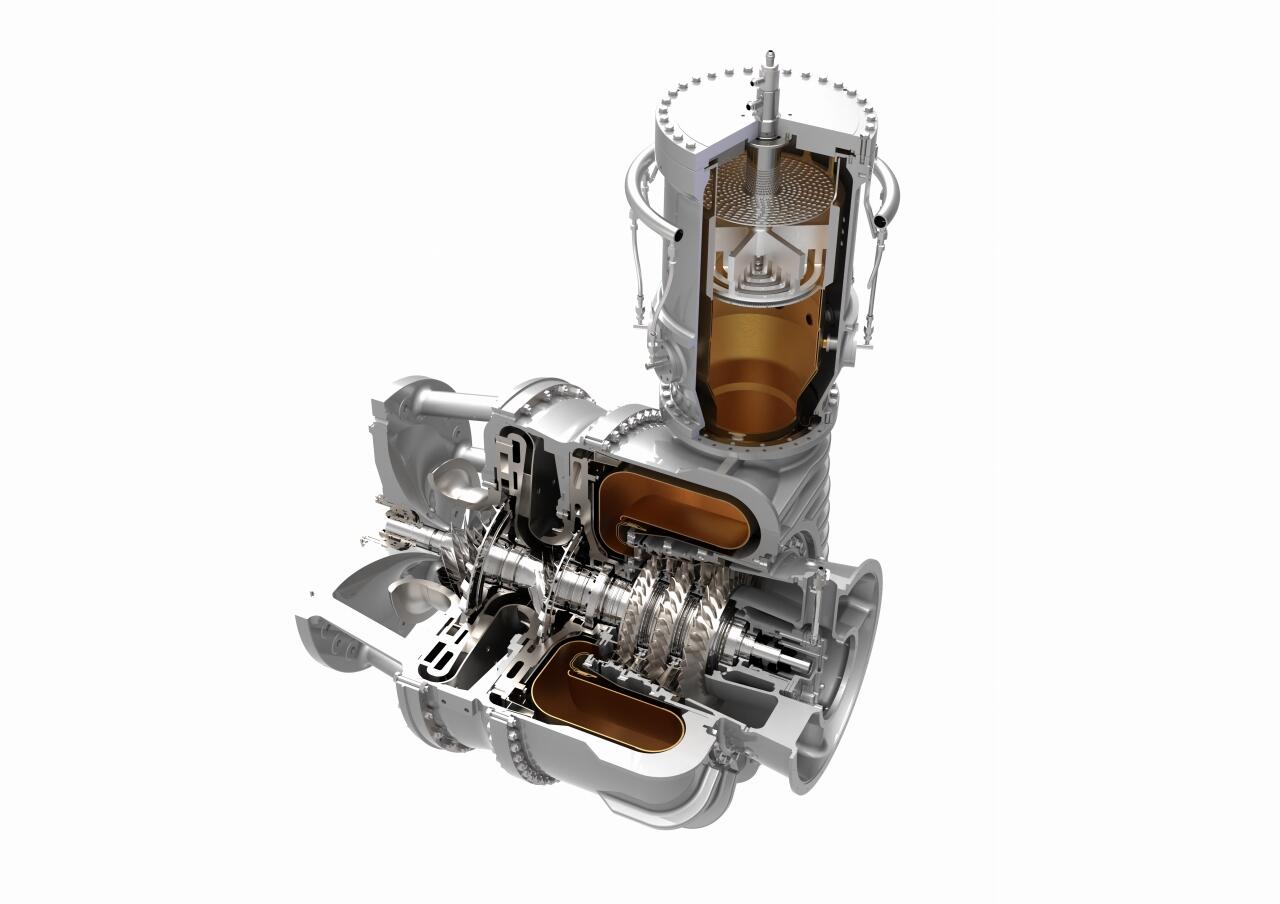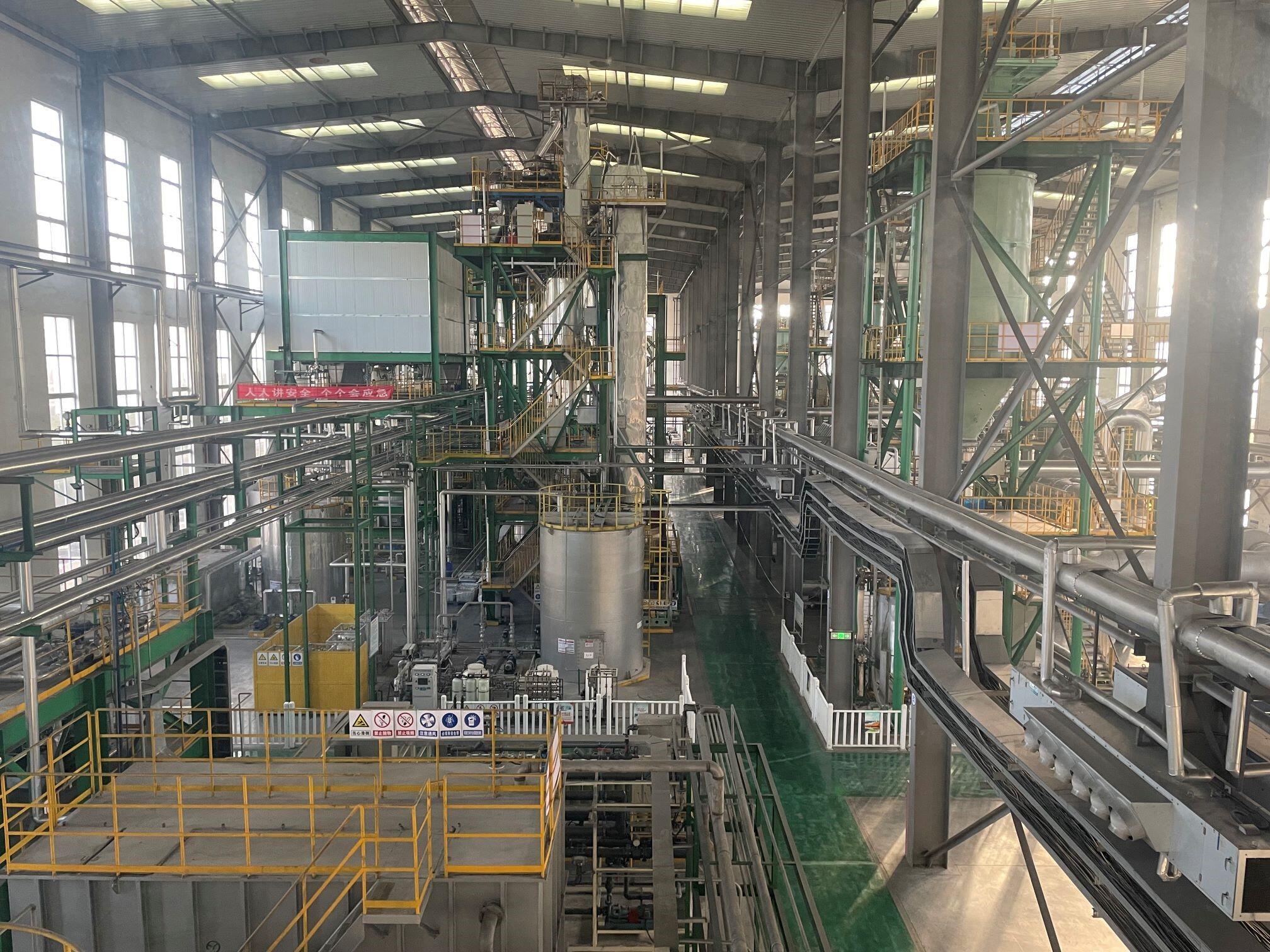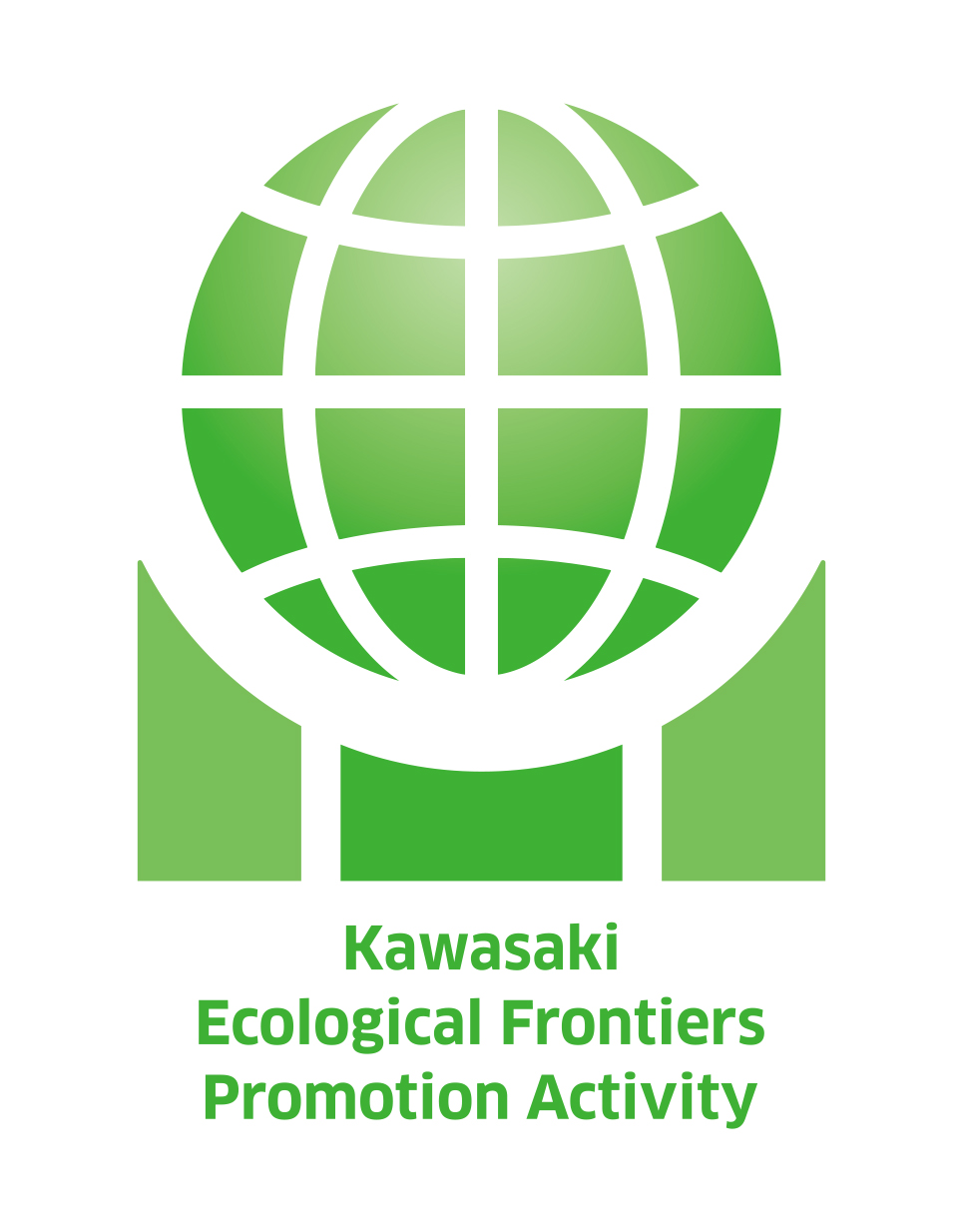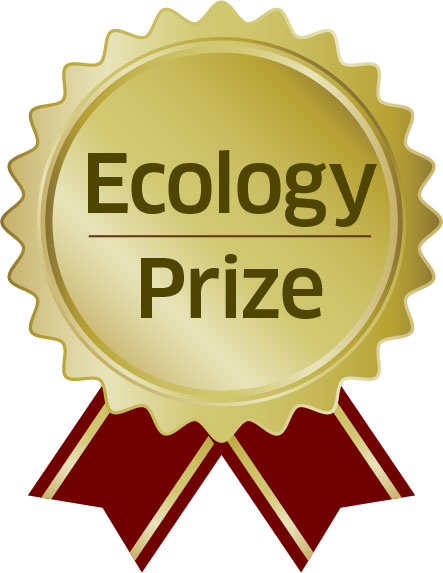Environmentally Conscious Products
Kawasaki Ecological Frontiers System
Purpose of the System
Since 2014 the Kawasaki Group has implemented its Kawasaki Ecological Frontiers system (formerly Kawasaki-brand Green Products system), an internal system for certifying environmentally conscious products, as a means of reducing the environmental impact of the Group's products and services throughout their life cycles. Under the system, superior products—in terms of whether the products themselves evidence improved environmental performance and whether the associated manufacturing processes demonstrate a reduced environmental impact—are certified and registered. In product development, we contribute in various ways to promoting a reduction of the environmental impact, including the improvement of energy efficiency through the fuel and power efficiency of products and so on; a reduction in environmental-load emissions, such as greenhouse gases and harmful chemical substances, in production processes; and resource saving in products themselves. In light of an increase in recent years in the registration of epoch-making decarbonization solutions, such as hydrogen equipment, in February 2024 we established three new categories (the Decarbonization Category, Transition Category, and Electric and Energy Saving Category) to clearly evaluate the diversifying products and conduct appropriate certification and registration. From the three perspectives of innovative initiatives to realize a decarbonized society, continuous activities to reduce the environmental impact as a transition to a decarbonized society, and further energy-saving activities in electric products, solutions, and so on that contribute to decarbonization, we will aim to realize a carbon-neutral society (CO2 FREE), a recycling-oriented society (Waste FREE), and a society coexisting with nature (Harm FREE). We heighten the desire of employees to create valuable products by paying an incentive (monetary compensation) to employees involved in the development of newly registered products in accordance with the product's certification class.
Certification Process
The Group evaluates its products and their manufacturing processes for conformity with its own internal standards and disseminates the results of its evaluations outside the company in accordance with international standard ISO14021. Specifically, our standards are geared to improving the environmental performance of our products and reducing the environmental impact of our manufacturing processes from three emissions-reduction standpoints: CO2 FREE (reduction of CO2 emissions), Waste FREE (reduction of industrial waste), and Harm FREE (reduction in the release of harmful chemical substances). We have established three new categories (the Decarbonization Category, Transition Category, and Electric and Energy Saving Category) and, as explained below, register products as S Class or A class depending on the extent to which they meet evaluation standards.
- S Class:
- Product evaluated as corresponding to the highest level in the industry in terms of environmental consciousness
- A Class:
- Product evaluated as exceeding the standard industrial level or the level of our previous model in terms of environmental consciousness
Number of registered products
In this system we constantly maintain up-to-date registration by reevaluating registered products every three years. As of the end of September 2025, the Group had registered 67 products in total, including 15 new registrations during the three years prior (5 in 2023, 7 in 2024, and 3 in 2025) and 52 renewed registrations of products originally certified in 2014–2022.
| Year first registered | 2014–2022 | 2023 | 2024 | 2025 | Total |
|---|---|---|---|---|---|
| S Class | 40 | 4 | 6 | 3 | 53 |
| A Class | 12 | 1 | 1 | 0 | 14 |
| Total | 52 | 5 | 7 | 3 | 67 |
For details on the registered products, please refer to Kawasaki ecological frontiers registered products.
Impact of the System
The CO2 emissions reduction effects*1 of the Group's environmentally conscious products, including those registered under the Kawasaki Ecological Frontiers system, were 1,905 kt-CO2*2 in fiscal 2024. The certified and registered products are contributing in many ways to reducing annual CO2 emissions and other environmental impact. Examples include gas-turbine and gas-engine electric power generation equipment that has achieved world-class efficiency, motorcycles manufactured with more than 90 percent recycled materials, and energy-saving rolling stock made possible by weight reduction. Detailed information regarding the CO2 emissions reduction effects due to environmentally conscious products including calculation rules and graphs showing trends for the past five years has been posted to the “Reducing CO2 Emissions through Product-Based Contributions” section of the CO2 FREE page. Please refer to these as well. Additionally, please refer to the table below for revenue from “Kawasaki ecological frontiers” for the past four years. (Covers: Kawasaki Heavy Industries, Kawasaki Railcar, Manufacturing, and Kawasaki Motors).
| FY | 2021 | 2022 | 2023 | 2024 |
|---|---|---|---|---|
| Revenue (billions of yen) | 248.6 | 160.0 | 242.9 | 233.6 |
*1 Reduction in CO2 emissions compared to earlier products (refer to the calculation rules below.)
*2 To put this figure into perspective, a passenger car with a gas mileage of 15 km/l that is driven 10,000 km per year emits about 1.5 t-CO2.
Aim behind Changing the System’s Name
In 2021, the system name was changed from Kawasaki-brand Green Products to Kawasaki Ecological Frontiers. In addition to the preexisting idea of Kawasaki-brand Green Products, the new name includes the sense that, for the “frontier”—i.e., the social issues of a new age—we will offer answers from a unique perspective and create a hopeful future not only with products but also by providing new solutions and creating systems. Throughout the entire life cycle of our products and the supply chain, we are working to realize a carbon-neutral society (CO2 FREE), a recycling-oriented society (Waste FREE), and a society coexisting with nature (Harm FREE).
Program Logo
The Kawasaki Ecology Prize 2024
*The system was revised from fiscal 2024 to include future potential as an award requirement.
Product name: 100% Hydrogen gas turbine power generator

The "100% Hydrogen gas turbine power generator " is a 1.8MW-class gas turbine cogeneration system equipped with a combustor capable of hydrogen-only combustion using the dry method*1, the first in the world. While achieving nearly the same power generation efficiency as conventional products, the use of hydrogen-only combustion can reduce CO2 emissions during power generation by the equivalent of approximately 12,900 tons per year*2. In recognition of its high future potential toward realizing a decarbonized society, it was selected as the recipient of the Kawasaki Ecology Prize 2024. External awards for this product are as follows:
External Awards
- Nikkan Kogyo Shimbun, "Masuda Award" at the 66th Top 10 New Product Awards
- Cogeneration Foundation, "Chairman's Award" in Technology Development Category at the Cogeneration Awards 2023
- Connecting Green Hydrogen MENA 2024, "Hydrogen Technology of the Year 2024" at the Hydrogen Future Awards
*1 A combustion method that reduces NOx without water injection (or steam injection). Since there is no loss of combustion energy, the power generation efficiency is higher than with the water injection method, but it is difficult to control the combustion temperature.
*2 Continuous working time: Assumed to be 8640 hours per year
Product name: Lithium Ion Battery (LIB) Recycle System

The "Lithium Ion Battery (LIB) Recycle System" is a system that recovers rare metals from used automotive LIBs with high efficiency and low environmental impact. The rare metals contained in automotive LIBs are recycled, and highly efficient lithium recovery is made possible by improving energy efficiency, such as by using exhaust gas from cement manufacturing facilities from the preliminary roasting to roasting process. As demand for lithium-ion batteries increases with the spread of electric vehicles, this system can address concerns about the supply of rare metals and a rapid increase in discarded batteries, and has the potential to contribute to reducing CO2 emissions throughout society. It was selected as the winner of the Kawasaki Ecology Prize 2024. The external awards for this product are as follows:
External Awards
- Registered on the 2022 White Company List*
*A list of companies certified by the Chinese government. Recognized as an exemplary company in the waste automotive battery recycling industry.

 The program logo embodies the Group's commitment to environmental sustainability through products and manufacturing. The Kawasaki Group's primary business areas—land, sea, and air transport systems, energy and environmental engineering, and industrial equipment—each with innovative and advanced technological capabilities, form three solid pillars that together support the global environment.
The program logo embodies the Group's commitment to environmental sustainability through products and manufacturing. The Kawasaki Group's primary business areas—land, sea, and air transport systems, energy and environmental engineering, and industrial equipment—each with innovative and advanced technological capabilities, form three solid pillars that together support the global environment.
 Among the products registered under "Kawasaki Ecological Frontiers," a special commendation is given to products that have received external environmental recognition and have made a significant contribution to business management or are expected to make a significant contribution to future business development and expansion* as the "Kawasaki Ecology Prize."
Among the products registered under "Kawasaki Ecological Frontiers," a special commendation is given to products that have received external environmental recognition and have made a significant contribution to business management or are expected to make a significant contribution to future business development and expansion* as the "Kawasaki Ecology Prize."




